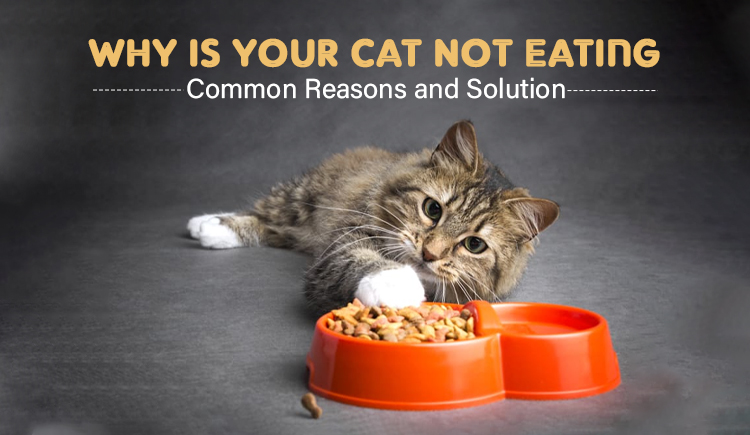
Cats are finicky eaters by nature, but if your furry feline friend is not eating at all, it can be concerning. There can be various reasons why your cat is not eating, and it is crucial to identify the root cause and take the necessary steps to get them back to healthy eating. Here are ten reasons why your cat may not be eating.
Reasons Why Your Cat Is Not Eating
Dental Problems
Dental problems such as tooth decay, gum inflammation, or broken teeth can make it painful for your cat to eat. Check your cat’s mouth for any signs of swelling, redness, or broken teeth. If found any of these signs, take them to the vet to treat any dental problems.
Illness
Cats can get sick like humans, and an underlying illness can cause your cat to lose their appetite. Some common illnesses that can cause loss of appetite in cats include kidney disease, pancreatitis, and infections. Take your cat to the vet for a proper diagnosis.
Stress or Anxiety
Cats are sensitive to changes in their environment and can get stressed or anxious. A change in routine, new pets, or guests in the house can cause stress, leading to a lack of appetite. Try to keep your cat’s environment stable and provide them with a quiet space to relax.
Medication
Certain medications can cause your cat to lose their appetite. If you have been administering a medicine or a treatment to your cat it can be affecting your cat’s appetite. Consult your vet if the problem persists for a longer time.
Aging
As cats age, they may experience a decrease in appetite due to various reasons such as digestive issues, dental problems, or illness. Take your cat to the vet for a check-up and make any necessary adjustments to its diet.
Food Allergies
Cats can develop allergies to certain foods, causing them to avoid eating. A sudden change in food product may not suit your cat causing diarrhea and puking. This is another reason why your cat would be avoiding its meal. When you bring a new meal for a cat, gradually introduce it to your pet in the span of 7 to 10 days. If it still doesn’t suit change it completely.
Obesity
Obesity can lead to various health problems in cats, including a loss of appetite. Monitor your cat’s weight and ensure they are getting enough exercise to prevent obesity. Some playtime on a regular basis will make your cat tired and will increase your cat’s appetite.
Unclean Food and Water Bowls
If your cat is not eating, check their food and water bowl. They may not be eating due to a dirty bowl or water that is not fresh. Also, ensure your cat’s food is stored properly and not exposed to air or moisture.
Behavioral Issues
If your cat is not eating, it may be due to behavioral issues such as pickiness or boredom with their food. Try different types of food or feed them smaller, more frequent meals throughout the day.
Recent Vaccination
After getting vaccinated, cats may experience a loss of appetite. This is usually temporary and should resolve within a few days.
[Also Read] Best Topical Flea and Tick Treatment for Cats
How To Make My Cat Eat?
If any of the above-mentioned situations resonate with your feline lifestyle its a sign that you need to take measures to get them back to eating, here are some ways to do so:
Offer different types of food: A different meal or change in food may pique your cat’s interest. Try offering wet food, dry food, or different flavors of food.
Warm their food: Warming up your cat’s food can enhance its aroma, making it more appealing to them, but make sure it’s not too hot.
Change the feeding location: Cats can be sensitive to their environment, and changing the feeding location may help them feel more comfortable. Try moving their food bowl to a different location in the house.
Make your cat’s meals smaller and more frequent: Cats prefer smaller, more frequent meals, and offering food several times a day may help encourage them to eat.
Consult with a vet: If your cat is not eating for an extended period, it is crucial to take them to the vet for a proper diagnosis and treatment. The vet may prescribe medication or suggest a different type of food to encourage your cat to eat.
In conclusion, a lack of appetite in cats can have various underlying causes, and it is essential to identify the root cause and take the necessary steps to get them back to healthy eating habits.

